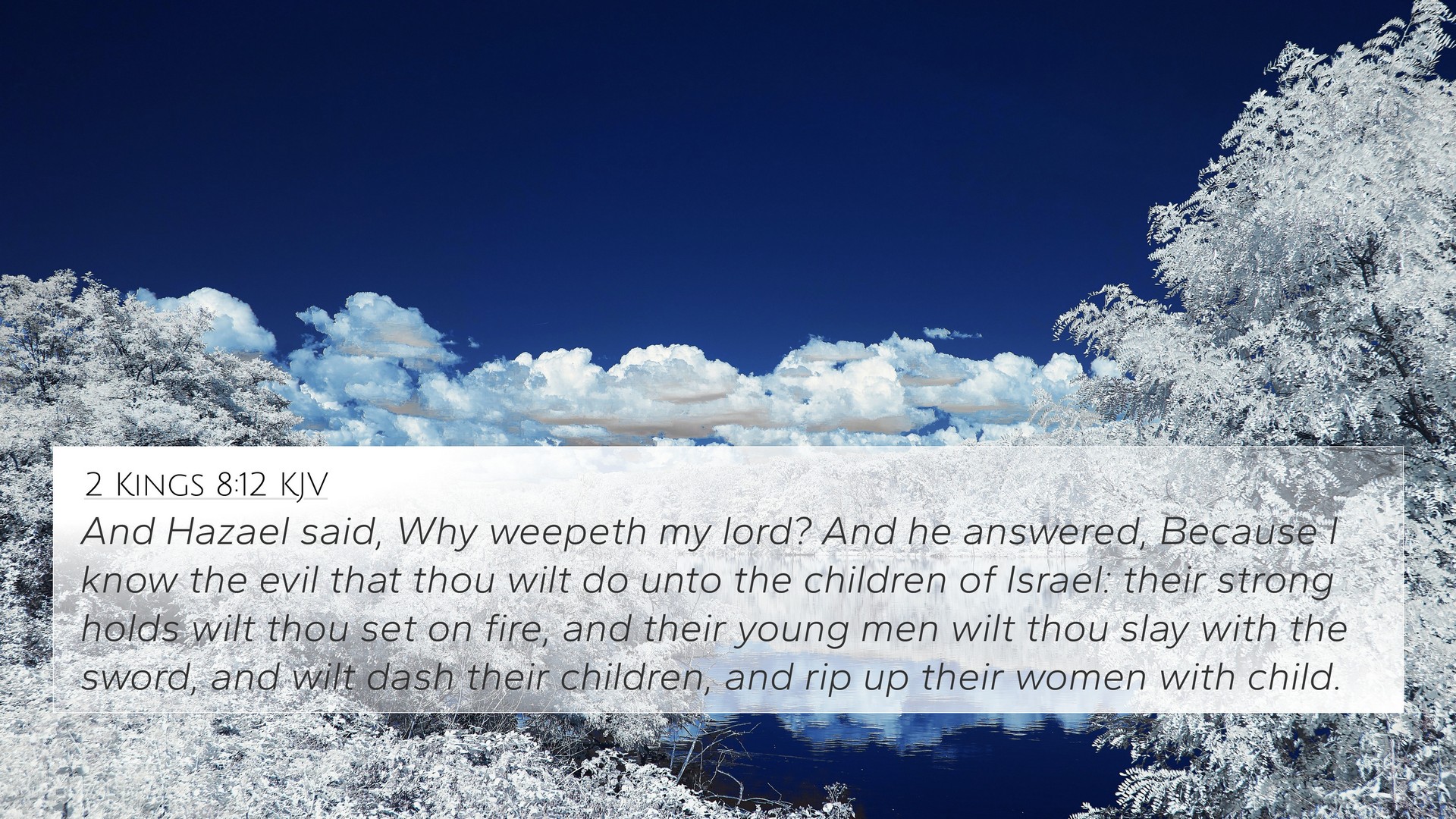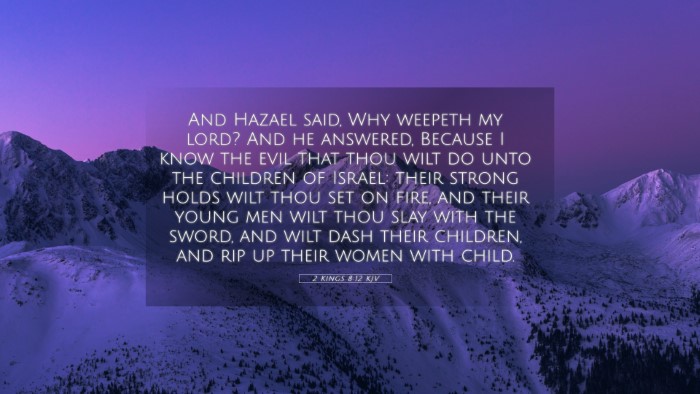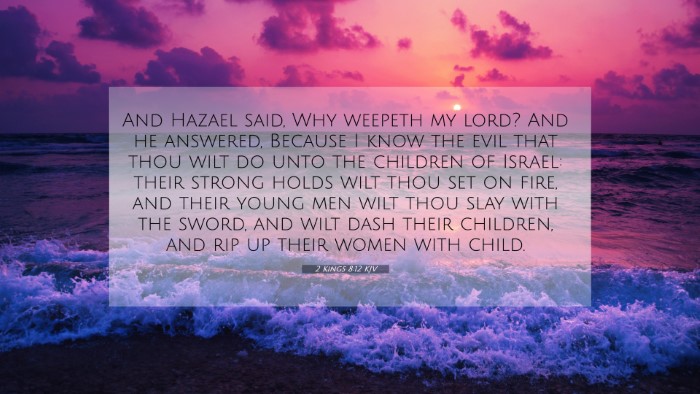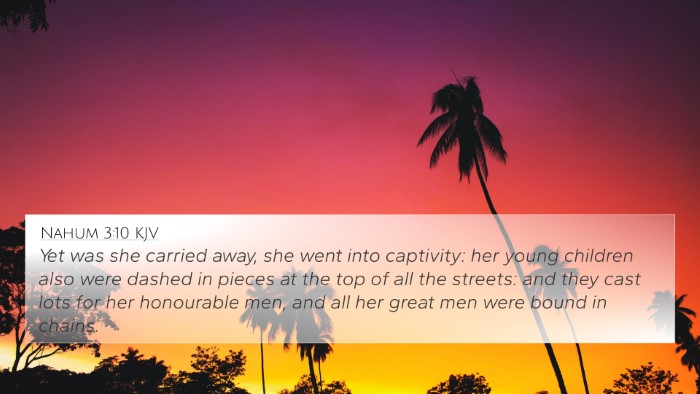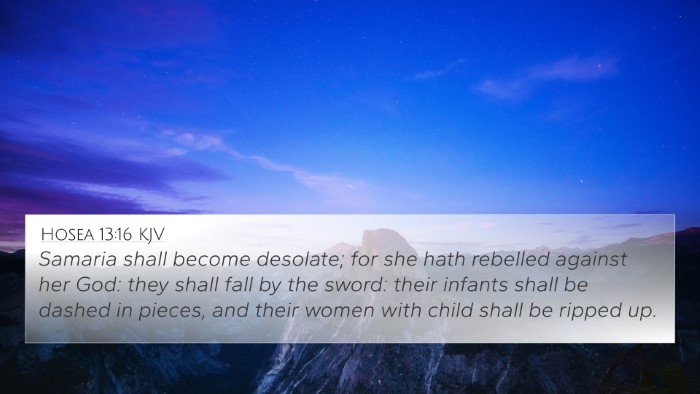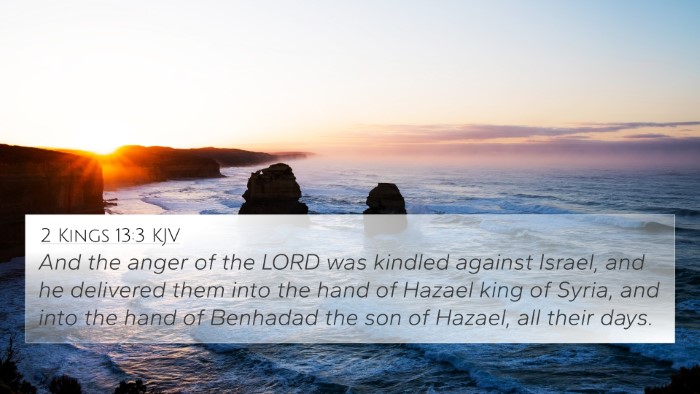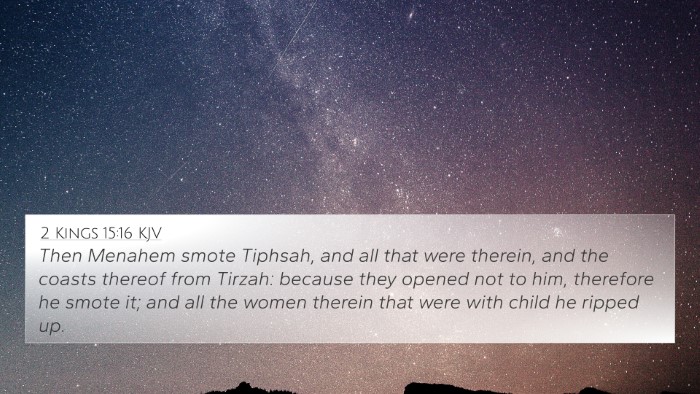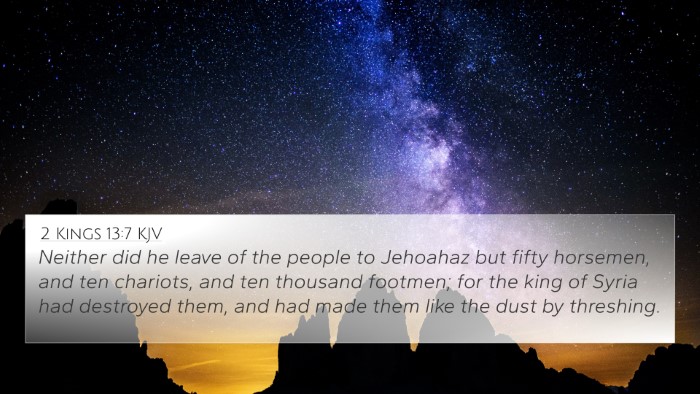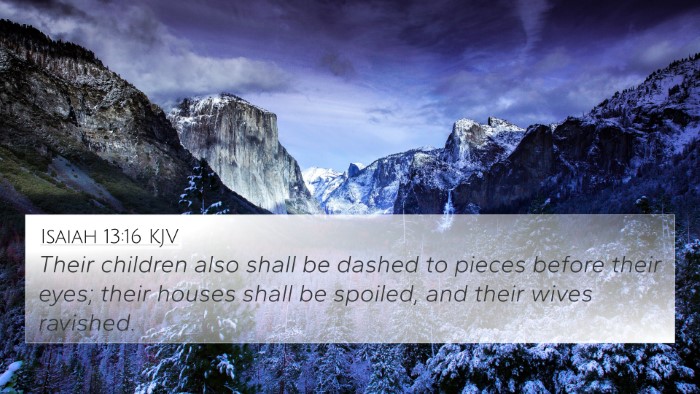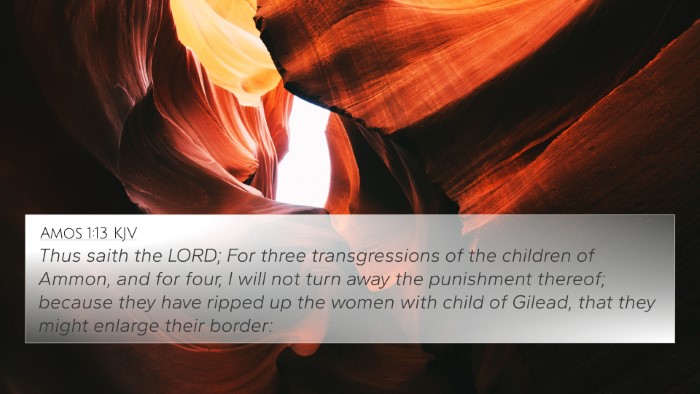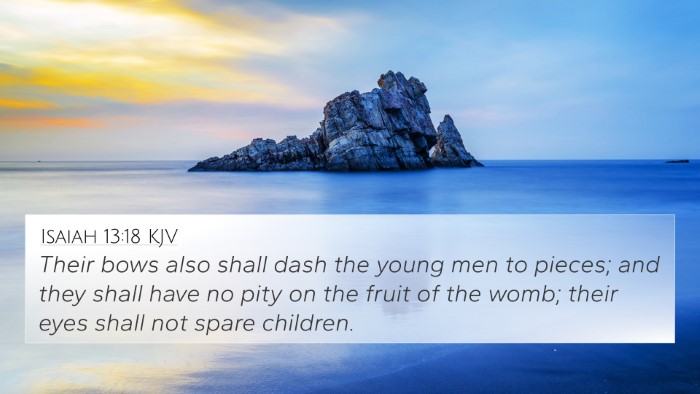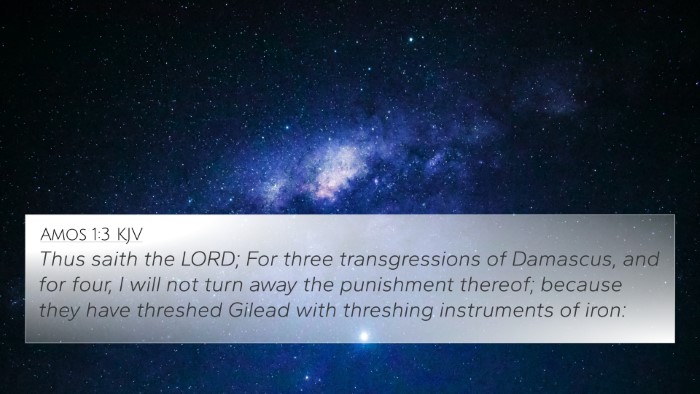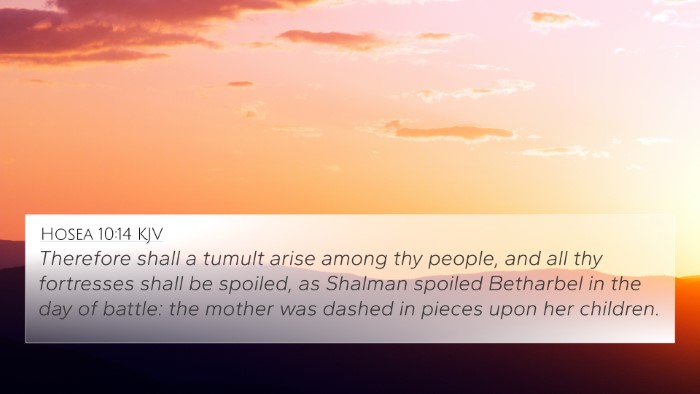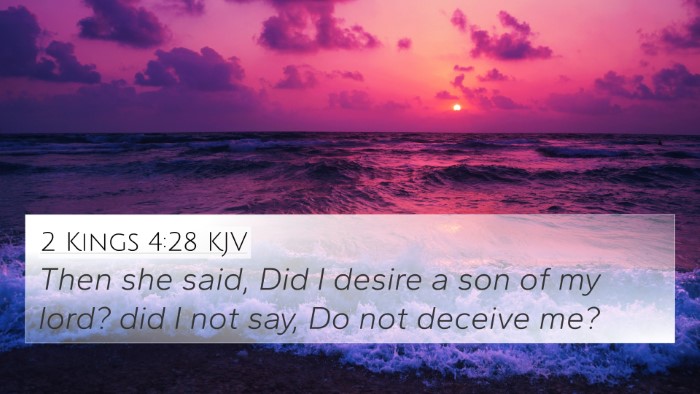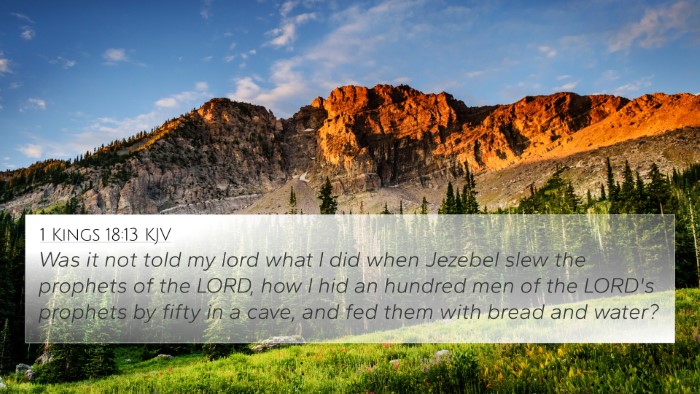Understanding 2 Kings 8:12
2 Kings 8:12 states:
"And Hazael said, Why weepeth my lord? And he answered, Because I know the evil that thou wilt do unto the children of Israel: their strongholds wilt thou set on fire, and the young men wilt thou slay with the sword, and wilt dash their children, and rip up their women with child."
Summary of Context
This passage takes place during a critical period in Israel's history, where the nation's fate is being foretold due to the impending actions of Hazael, who is to be the next king of Aram. Elisha, the prophet of God, reveals the tremendous calamities that will befall the people of Israel as a consequence of their unfaithfulness.
Interpretations from Public Domain Commentaries
Insights from notable commentaries, such as those by Matthew Henry, Albert Barnes, and Adam Clarke, highlight several key aspects of 2 Kings 8:12:
Matthew Henry’s Commentary
Henry emphasizes the prophetic nature of Elisha's revelation, portraying him as a divine instrument warning of the destruction that Hazael will bring. The prophet’s sorrow reflects the gravity of the situation, as he understands the devastating consequences for Israel's future. It highlights God’s foreknowledge of human actions and the resultant judgment.
Albert Barnes’ Notes
Barnes elaborates on the nature of Hazael's impending actions, illustrating his ruthlessness and ambition. The strongholds will be burned, symbolizing a complete obliteration of defense. The killing of young men and the abominable acts towards women signify a total moral decay and a stark warning about the violence to come. This grim forecast underscores the heavy price Israel must pay for its disobedience to God.
Adam Clarke’s Commentary
Clarke provides a deep analysis of Hazael's character, associating his actions with an absence of compassion and understanding. His question towards Elisha, "Why weepeth my lord?", reflects a profound disconnect from the reality of his future actions. Clarke emphasizes the prophetic insight that the true depth of sin is often ignored by those who commit it, leaving observable destruction in their wake.
Thematic Connections
This verse serves as a powerful reminder of the consequences of sin and evil leadership. Elisha’s prophecy is not just a warning but a reflection of God’s judgment on a nation that has turned away from Him.
Cross-References
Here are some Bible verses that relate to 2 Kings 8:12:
- Isaiah 9:17 - A warning about the fate of children in times of turmoil.
- Amos 1:3-5 - Prophecies regarding judgment against neighboring nations.
- 2 Kings 9:7 - The call for vengeance upon the house of Ahab.
- Micah 3:10 - Prophetic condemnation against those who build Zion with blood and Jerusalem with iniquity.
- Jeremiah 49:2 - A lament about the fate of Edom and its destruction.
- Hosea 8:13 - A reference to the sacrifices of Israel that will lead to their destruction.
- 2 Chronicles 21:16-17 - The invasion of the Philistines and Arabians against Jehoram's kingdom as a divine response.
- Zephaniah 1:17 - A divine promise concerning the suffering and judgment upon mankind.
- Matthew 24:19 - Jesus’ reference to woe upon those who are pregnant or nursing in dire times.
- Luke 19:44 - Foretelling the destruction of Jerusalem for not knowing the time of visitation.
Connections Between Bible Verses
The connections between Bible verses often highlight broader themes of judgment and divine retribution. In studying 2 Kings 8:12 alongside these cross-references, we uncover important narrative threads that run throughout scripture, especially regarding the consequences of national sin.
Tools for Bible Cross-Referencing
For those interested in deepening their study of Scripture, employing a Bible concordance and a Bible cross-reference guide can significantly enhance one's understanding of scriptural dialogues. Effective cross-referencing helps in:
- Identifying themes across different books.
- Connecting Old Testament prophecies with New Testament fulfillments.
- Exploring deeper theological insights by correlating related verses.
Conclusion
The verse 2 Kings 8:12 offers profound insights into the nature of evil and God's foreknowledge, while also serving as a stern warning to individuals and nations alike about the severe repercussions of straying from divine commandments. By engaging with the surrounding text and using tools for Bible cross-referencing, believers can find deeper meaning and connections that enrich their understanding of God’s word.
